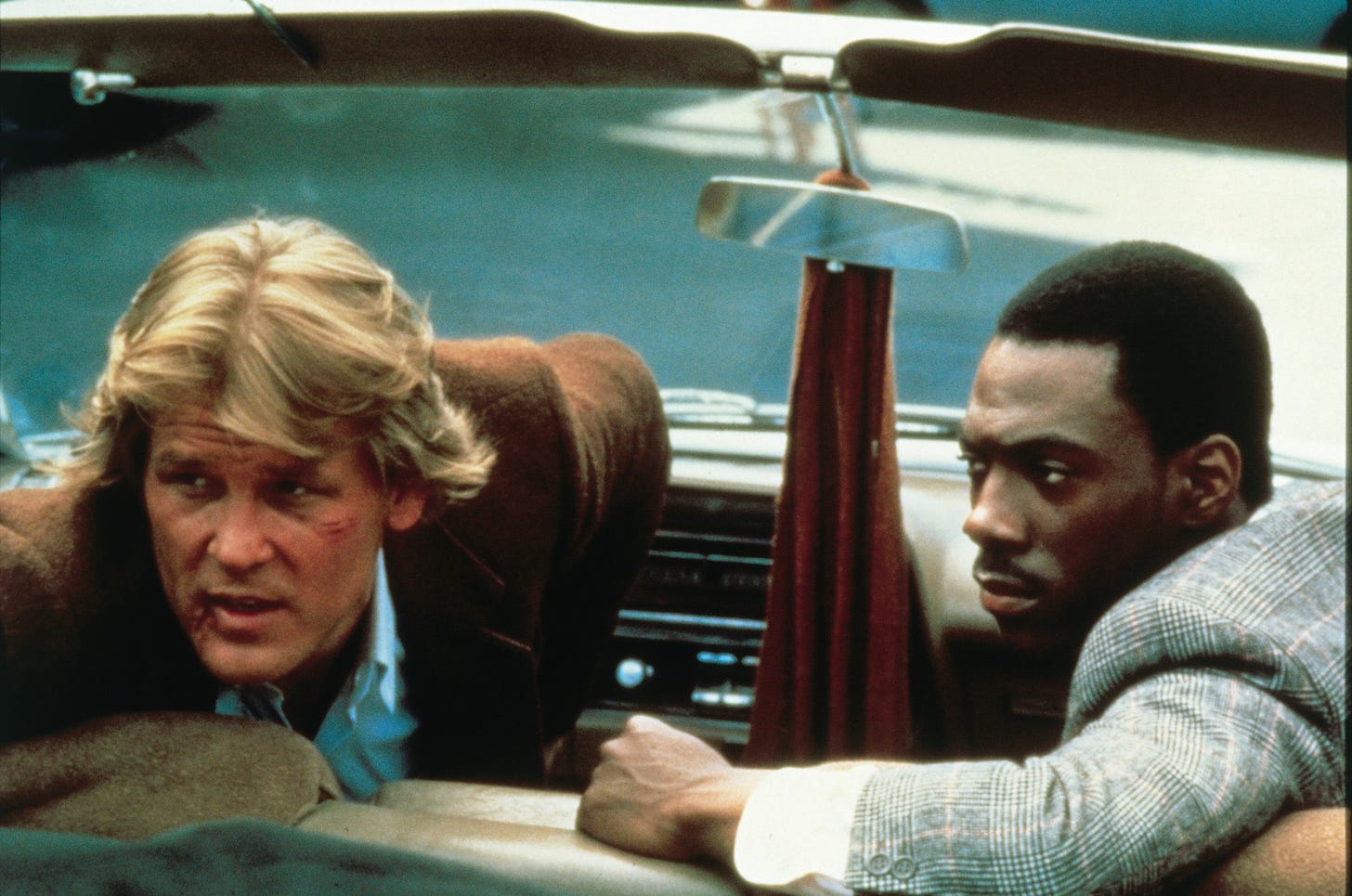The ‘80s in 40: '48 Hrs.' (December 8, 1982)
Walter Hill's genre-defining buddy cop comedy allowed Eddie Murphy to make himself into a movie star.
The ‘80s in 40 revisits the decade of the 1980s choosing four movies a year, one from each quarter. This entry covers the fourth quarter of 1982.
There are many great scenes in 48 Hrs., the genre-defining Walter Hill buddy cop comedy released in December 1982, but only one mentioned by critic after critic in the film’s first reviews. It begins about 35 minutes into the film, when hard-bitten San Francisco cop Jack Cates (Nick Nolte) and Reggie Hammond (Eddie Murphy), a convict he’s checked out of prison to aid in catching a vicious killer, pursue a lead to a cavernous redneck bar named Torchy’s.* Knowing he’ll be recognized as a cop, Jack asks Reggie to pretend to be one as well, and to mimic carrying a sidearm. After Reggie mocks Jack for his dependence on his gun, Jack replies, “Attitude and experience is what gets you through.” Reggie has attitude but no experience. It soon becomes apparent that’s enough.
Inside Torchy’s, Jack looks out of place but Reggie looks really out of place, noting it’s “Not a popular place with the brothers” as he enters and sizes up the situation. After an exchange with an uncooperative, openly racist bartender (Peter Jason), Reggie decides to take control of the situation, using a glass to smash the mirror behind the bar and getting tough as the cowboy hat- and boot-clad crowd goes silent. Then Reggie turns his attention to the rest of the bar. After exchanging blows with one customer and questioning another who attempts to flee, Reggie talks to the now-subdued patrons, saying, “All right, listen up: I don’t like white people. I hate rednecks. You people are rednecks. That means I’m enjoying this shit.”
Our Cyber Monday Special is good for the rest of the week. First-time paid subscribers to The Reveal can now save 20% off a one-year subscription. But act fast: this offer ends on Friday.
“Sometimes an actor becomes a star in just one scene,” Roger Ebert wrote in the opening of his 48 Hrs. review, going on to liken Murphy’s Torchy’s encounter to comparable star-making moments in the careers of Jack Nicholson and Faye Dunaway. Speaking to Playboy eight years later, Murphy saw it the same way, telling David Rensin, “I’ll never get that reaction from an audience again. That was like watching a baby get born. They went, ‘Oh, this guy’s gonna be doing movies for a while.’”
This, of course, proved to be true. (As did Murphy’s subsequent observation “You can get born only once in this business, but you can die over and over again. Then you can make comebacks.”) But why was it that scene that made it happen? There’s a short answer: Murphy’s just really good, Hill stages it brilliantly, and Nolte offers a brilliant assist in the form of a single deadpan punchline. (“Some of us citizens are behind you all the way, officer.”) Then there’s the longer answer, which involves looking at the moment both within the context of the film and of the moment in which Murphy arrived.
Keep reading with a 7-day free trial
Subscribe to The Reveal to keep reading this post and get 7 days of free access to the full post archives.




